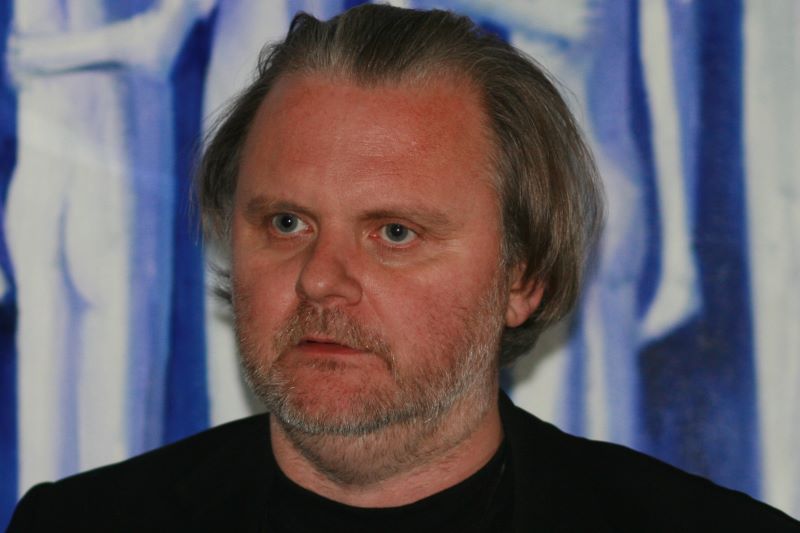Nobel Prize in literature (2023)
Jon Fosse
On Thursday, 5 October we got to know this year’s winner of Nobel Prize in the field of literature. Jon Fosse, Norwegian writer, receieved it for his “innovative plays and prose which give voice to the unsayable”.
Prof. Grażyna B. Szewczyk – German, Polish and Scandinavian studies scholar, translator of Norwegian literature (among others) tells us about the author of Septology.
TOMEK GRZĄŚLEWICZ: Is the Nobel prize in literature for Jon Fosse a surprise for you?
PROF. GRAŻYNA B. SZEWCZYK: No, because he has been named a candidate for many years now. Fosse is very well-known, particularly as a playwright in countries such as France and Germany. His works have been translated to several dozen languages. He has a very rich and varied output: he is the author of novels, essays, dramas, poems, books for children and translations. He also fulfils the universality criterion: he takes up general human subjects, such as friendship, loneliness, death and search for God. His prose will be meaningful in every language of the world.
TOMEK GRZĄŚLEWICZ: The Academy in Stockholm has emphasized in its verdict that the works by the Norwegian writer ‘give voice to the unsayable.’ Do you think that this phrase describes Fosse’s output precisely?
PROF. GRAŻYNA B. SZEWCZYK: In Jon Fosse’s works, the untold is often as important as what has been said. They are rather economical in words, but also filled with breaks, pauses and repetitions. The writer consciously slows down the pace of his characters’ statements, providing the reader with space for reflection. He actually calls himself the “author of slow prose”.
Perhaps it sounds slightly different in a theatre, depending on the director of the play, who may give it another meaning, but I’ve seen one of Fosse’s works staged and noticed similar elements as in his prose: suspension, minimalism, conciseness. He has developed his own separate technique, although we will find there a bit of surrealism, absurdity and the heartbeat of authors such as Henrik Ibsen and Thomas Bernhard.
TOMEK GRZĄŚLEWICZ: It is interesting to point out that Jon Fosse writes in nynorsk, which is far less common of the two official written standards in Norway (only about 10-15% of Norwegians use it as the official language form – editor’s note).
PROF. GRAŻYNA B. SZEWCZYK: Nynorsk, or ‘New Norwegian’ is indeed much less popular than bokmål, but it is used by a large group of active writers, and thriving in the artistic and literary circles. It is worth emphasizing that Fosse translates to nynorsk works by world literature authors such as Ibsen, Kafka and Rilke. Therefore, the Academy’s verdict can also be regarded as a tribute to the author writing in a “different” language. Fosse is also the first Norwegian Nobel Prize winner in the field of literature since Sigrid Undset in 1928.
TOMEK GRZĄŚLEWICZ: In Poland, we’ve only been able to read Jon Fosse since 2023, when the first two volumes of Septology, which is referred to as the writer’s opus magnum, were published by Art Rage. Which of his works should be translated next?
PROF. GRAŻYNA B. SZEWCZYK: The plays in particular. Some of them have already been staged in Polish theatres (e.g. in Warsaw, Kraków and Poznań – editor’s note). It is worth to read his books for children, because we mainly Scandinavia in this category with Astrid Lindgren. Fosse’s poetry is frequently religious in nature, with many references to the Holy Bible. His novel Melancholy, whose main character is a painter, is also interesting. However, the story is very specifically Norwegian and I don’t know if it will be translated to Polish.
TOMEK GRZĄŚLEWICZ: Thank you for the interview.






